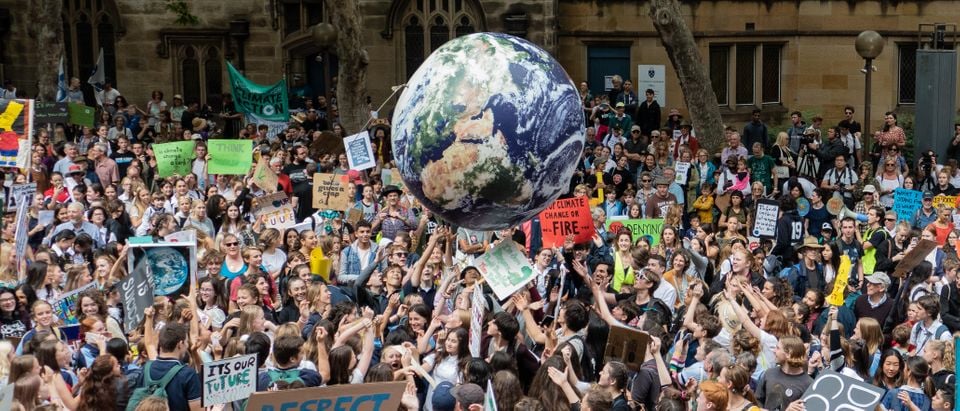I was lucky enough to be in the car to catch the entire first episode of Vince Coglianese’s new eponymous radio show, and a common theme, something I hope becomes regular, was “questioning the narrative.” Issues are reported with almost frightening uniformity of opinion and with a growing need to silence dissent. That has to stop.
We live in an age where many reporters, perhaps the majority, report about the reporting of what other reporters reported. Then that report becomes the subject of a report. For example, CNN Anchor Don Lemon regularly reports about what Chris Cuomo reported about Tucker Carlson. The only actual reporting of fact is Tucker’s. The rest is all, quite frankly, worthless drivel.
This is often how narratives develop. Two of these Vince questioned on Day One. The first narrative was about the origins of coronavirus. Just a year ago people were deplatformed from social media outlets and labeled conspiracy lunatics if they speculated mere interest in determining if China created the virus in its Wuhan Virology Lab. The circled wagons of the media have pushed the narrative that the origins of the virus are shut up and wear your mask while small businesses and churches are closed.
Another narrative is around the transgender movement. During the 2020 Democrat primaries when Sen. Elizabeth Warren won the highly coveted endorsement of BlackWomxnFor, she tweeted a word soup: “Black trans and cis women, gender-nonconforming, and nonbinary people are the backbone of our democracy” stretching her native American pandering further than is humanly possible. But she had good cause: the trans movement is sacred, and one must not question the psychology of someone pondering the irreversible damage to his physiology. One must only accept, and get their association’s endorsement. The Vince Coglianese show questioned it.
There’s no definitive conclusion on either issue. There’s a desire to see another side, understand new evidence, ask the probing questions which underlie comfortably, or better said, politically convenient, assumptions. That’s what journalism was supposed to do. That’s what talk radio does better than any other medium.
So, if we are allowed to question the prevailing narrative, can we talk about climate change?
What’s been the narrative? It’s happening, we are causing it, we can stop it if we change our lifestyles, and if we don’t stop it we are all going to die. The United Nations has been pushing this narrative my whole life. In 1989 they said we had a decade to fix it or The Maldives would be underwater. Paul Ehrilch, a scientist, said in 1972 “unless we are extremely lucky everybody will disappear in a cloud of blue steam in 20 years.”
Part of climate science should be understanding why those “scientific” narratives prevailed, why they are wrong and why the “science” is fixed going forward. However, that never happens, and new climate change narratives are invented.
Al Gore, Greta Thunberg, Alexandria Ocasio Cortez, all predicting death and ruin unless we grow the size of government and buy solar panels from China and make Elon Musk even richer than he already is. Will a solar grid reverse climate change? Will every American driving EVs do it? Can we run the entire country’s electric needs off of renewable energy? Those are not radical questions. They deserve real attention and investigation, but if you ask them you are branded the worst brand in all the land: denier.
Does climate change cause California’s forest fires? It certainly exempts Gavin Newsom from the difficult job of managing the state’s forests. Think about it: why do we not see the annual, relentless, forest fires of Southern Oregon or Western Nevada? Why does Idaho or northwest Arizona never seem to have the climate change California does? Or Canada?
Louisiana Islands are disappearing. They are, indeed. Why? Most likely because the engineering along the Mississippi River (especially after Hurricane Katrina) prevents the build-up of silt deposits. Or, much easier, climate change. Just 50 miles away in two different directions the coasts of Mississippi and Texas are unaffected.
Can we at least admit that is … curious?
In his recent visit to FEMA, President Biden talked about climate change contributing to “more extreme events.” However, researchers have plotted 50 years of hurricanes showing no trends in frequency or intensity, so what is Biden talking about? Well, that could be said about a lot fo things, but in this case, he’s actually cheering on the bad. It’s GOOD climate change isn’t causing more or worse storms. If you want climate change, if you need it for your narrative, you turn to other, irrelevant, statistics. “U.S. disaster costs doubled in 2020” the New York Times reported breathlessly. If costs are a measure, we could also conclude more people, richer people, with more stuff, are living near the coast.
The narrative isn’t more important than the facts. Is it?
Maybe the coronavirus was created in a lab, intentionally, partially funded by American grants, and it escaped either by accident or on purpose. Maybe trans people can resolve their gender issues with counseling, and hormones and corrective surgery aren’t really healthy solutions. Maybe climate change isn’t the threat they make it out to be but is being used for another purpose.
Those are all controversial statements that could have me kicked off social media, but the truth of the matter, the truth in general, is more important than any narrative, any agenda, any politician, and the truth needs defenders. Narratives need to be questioned. Good luck to Vince in his new show. He’s off to a great and important start.
Daniel Turner is the founder and executive director of Power The Future, a national nonprofit organization that advocates for American energy jobs. Contact him at daniel@powerthefuture.com and follow him on Twitter @DanielTurnerPTF


